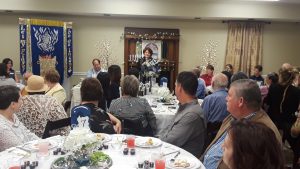“BaHar” means at the mountain, from which Abba YHWH gives this series of instructions. It concerns itself with the intricate Jubilee and Land Sabbath rules, which I will be discussing from Torah and giving my take on them in the Eternal Torah Calendar system.
“Emor” means “he said” and it is heavily concerned with purity regulations, but it then shifts into a bigger picture with restoring and re stating the sacred year. Abba YHWH does this to show the Israelites to know they renew their covenant by following His instructions, so He repeats these rules to reassure Israel their covenant continues.
“Emor” means “he said” and it is heavily concerned with purity regulations, but it then shifts into a bigger picture with restoring and re stating the sacred year. Abba YHWH does this to show the Israelites to know they renew their covenant by following His instructions, so He repeats these rules to reassure Israel their covenant continues.
“Kedoshim” means “you shall be Set-Apart.” This is a kind of “Cliff Notes” style discussion of some of the main themes of the overall Torah. It includes some of the Ten Words (Commandments) but not all of them and wraps around the ones it does include with either brief application advice or other commands that the text didn’t have the chance to get to yet. Also stay tuned for the “deep dives” of Video #4, first with the timing of Passion Week and a very rare astronomical event and next with the stunning vision that is the 153 Code!
“Kedoshim” means “you shall be Set-Apart.” This is a kind of “Cliff Notes” style discussion of some of the main themes of the overall Torah. It includes some of the Ten Words (Commandments) but not all of them and wraps around the ones it does include with either brief application advice or other commands that the text didn’t have the chance to get to yet. Also stay tuned for the “deep dives” of Video #4, first with the timing of Passion Week and a very rare astronomical event and next with the stunning vision that is the 153 Code!
From deep clues from Noah’s Flood to the death and resurrection of Yeshua the Messiah, explore the surprising history of Pesach from beginning to end!
“Aharei Mot” means “after the death,” referring to the demise of Aaron’s sons Nadab and Abihu who offered fire in a way not sanctioned by Abba YHWH. The portion begins with the purification measures that Aaron and his remaining sons need to go through to rectify the evil that was done in Abba YHWH’s sight. Once done, additional purity regulations are given on how native Israelites are to slaughter and handle blood. Abba YHWH then opens the last chapter in this portion by reminding Israel that they are not to do the practices of the peoples either from where they came from (Egypt) or where they are going (Canaan) but must remain a Set-Apart people. In order to do this, the portion closes with additional regulations of proper and improper sexual conduct.
“Aharei Mot” means “after the death,” referring to the demise of Aaron’s sons Nadab and Abihu who offered fire in a way not sanctioned by Abba YHWH. The portion begins with the purification measures that Aaron and his remaining sons need to go through to rectify the evil that was done in Abba YHWH’s sight. Once done, additional purity regulations are given on how native Israelites are to slaughter and handle blood. Abba YHWH then opens the last chapter in this portion by reminding Israel that they are not to do the practices of the peoples either from where they came from (Egypt) or where they are going (Canaan) but must remain a Set-Apart people. In order to do this, the portion closes with additional regulations of proper and improper sexual conduct.
“Metzora” or more precisely “Ha Metzora” means “The Leper,” and the portion concerns primarily how a leper gets pronounced clean by the priests, how he demonstrates he has been cleansed from the disease. The previous Torah portion (Tazria) concerned states of impurity and isolation for women who have just given birth and lepers. This portion deals with how to get the lepers clean again. It then takes an interesting turn to discuss what happens when a whole house becomes unclean before ending with other purity rules for men and women.
“Metzora” or more precisely “Ha Metzora” means “The Leper,” and the portion concerns primarily how a leper gets pronounced clean by the priests, how he demonstrates he has been cleansed from the disease. The previous Torah portion (Tazria) concerned states of impurity and isolation for women who have just given birth and lepers. This portion deals with how to get the lepers clean again. It then takes an interesting turn to discuss what happens when a whole house becomes unclean before ending with other purity rules for men and women.
“Tazria” means “to bring seed, give birth.” It begins with the “niddah” rules, or how a woman is unclean for a certain period after giving birth. The rest of the portion then deals with how lepers are to be isolated and pronounced clean by the priests before being allowed to rejoin Israel.
Shemini means “on the 8th day” deals with the end of the priests’ consecration period. After this, they can then make expiation for all of Israel. Unfortunately however, two of Aaron’s sons pay the ultimate price for not ministering properly to the people. The portion then ends with the “kosher list” of what can and cannot be eaten, a perfect segue into our Apostolic Writings reading which also discusses kosher food.

